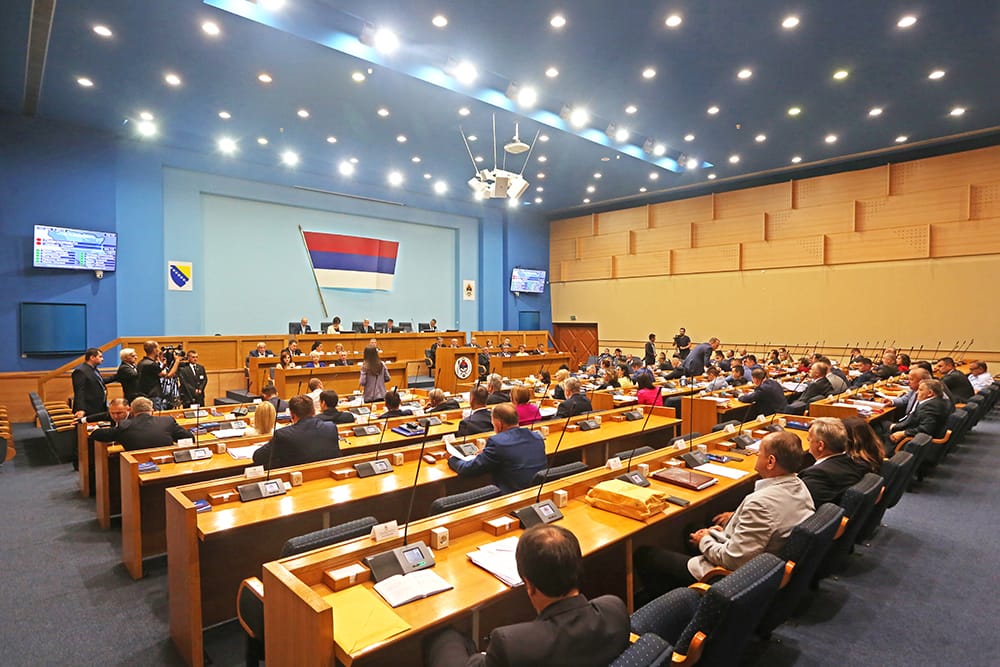Deputies of the RS National Assembly supported with a majority vote the introduction of insult and defamation in the Criminal Code of the entity.
In the next 60 days, all citizens, groups, and organizations will have the opportunity to express their opinion on the Draft at a public hearing. After that, the final proposal for amendments to the Code should be submitted to the RSNA for a second vote.
According to the RS Minister of Justice Miloš Bukejlović, the amendments to the Code aim to “protect the dignity and spiritual integrity, privacy, personal and family life, which are guaranteed and inviolable for all citizens, as provided for in the RS Constitution”.
This Ministry drafted the text that introduces the criminalization of insult and defamation at the particular insistence of the Entity president Milorad Dodik.
According to the Draft, acts against honor and reputation would constitute a criminal offense and would be strictly punished.
For an insult, the court could impose fines of up to BAM 20,000, and if it was committed in front of a large number of people – publicly or through the media – up to BAM 50,000.
In addition, the authorities in the RS believe that the appropriate penalty for citizens who disclose “anything from [someone’s] personal or family life” that can harm their honor or reputation would be from BAM 10,000 to 100,000, and if it “could lead to serious consequences for the injured party” – up to BAM 120,000.
The Draft specifically states that “the truth or falsity of what is being disclosed” from [someone’s] private life cannot be proven, except in special cases. The Code does not specify exactly what this refers to and how this article of the Criminal Code will be implemented.
Fines for defamation would vary from BAM 8,000 BAM to 100,000.
It was clarified during the discussion that the Draft foresees prison sentences of up to two years for those convicted who will not be able to pay the fine for insult and defamation.
Director of the Banja Luka Center for Human Rights, Dejan Lučka, sees another problem in the draft, in addition to high fines.
“Having a criminal history is the bigger problem. And when you are criminally convicted, you are seen as a criminal, a rapist, or a murderer. For the people around you, you are the same as any other criminal, and this is a new stigma on journalists, even if the fine is small,” Lučka said.
If, after the public discussion, MPs in the NSRS adopt the final proposal on amendments to the Criminal Code, a prison sentence of up to 10 years could be imposed for unauthorized photography, recording, and publishing, if such an act caused health problems to the person in the photo or video.
According to the Draft, sentences of up to one year in prison could be commuted by a fine, but without the possibility of the court deciding on this matter, as was the practice until now. The value of prison time will change from BAM 50 to BAM 100 a day.
Such changes could introduce the non-democratic treatment of citizens and media in the Republika Srpska, thus rendering free journalistic reporting impossible and significantly denying citizens’ right to objective information.







